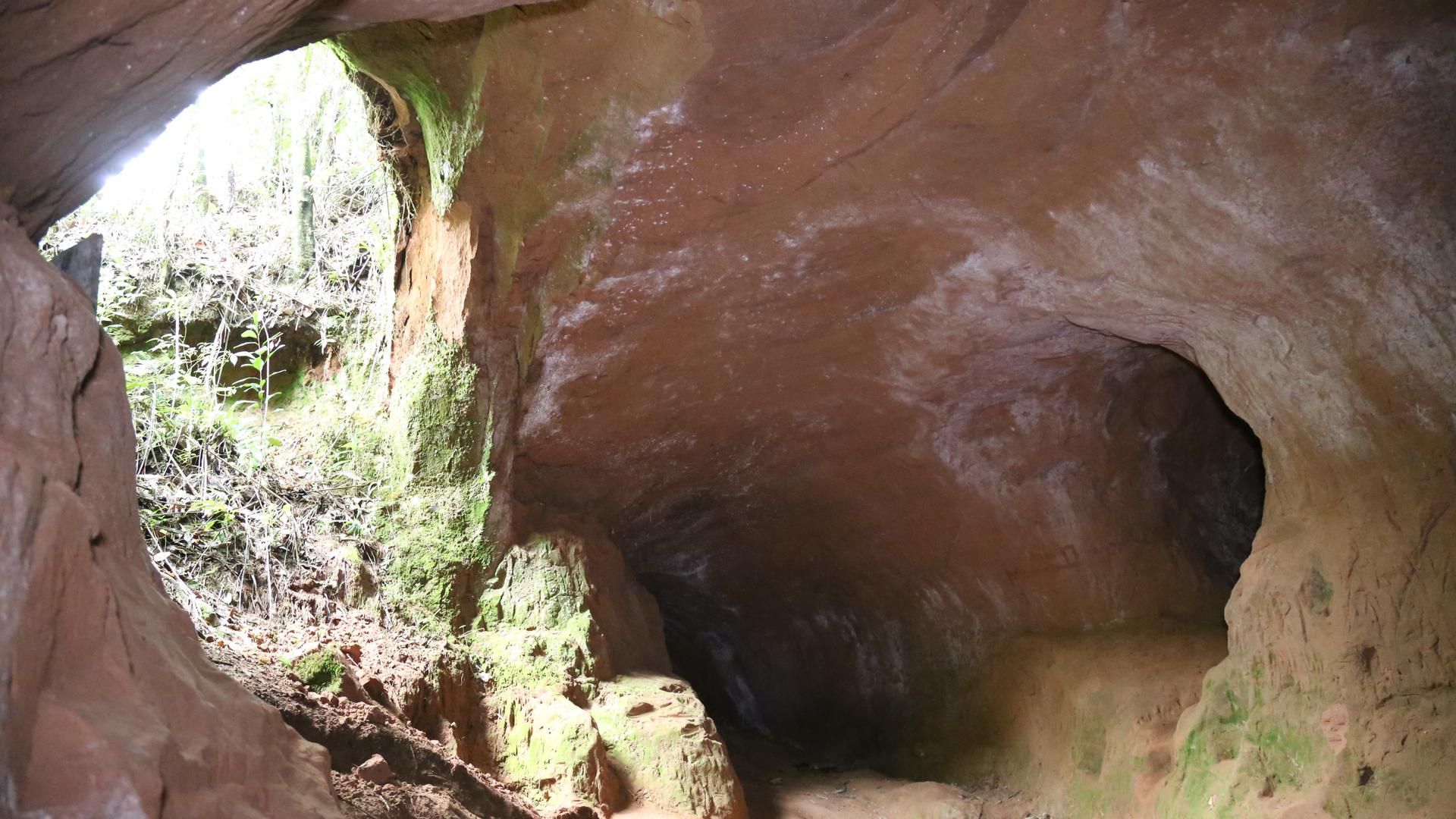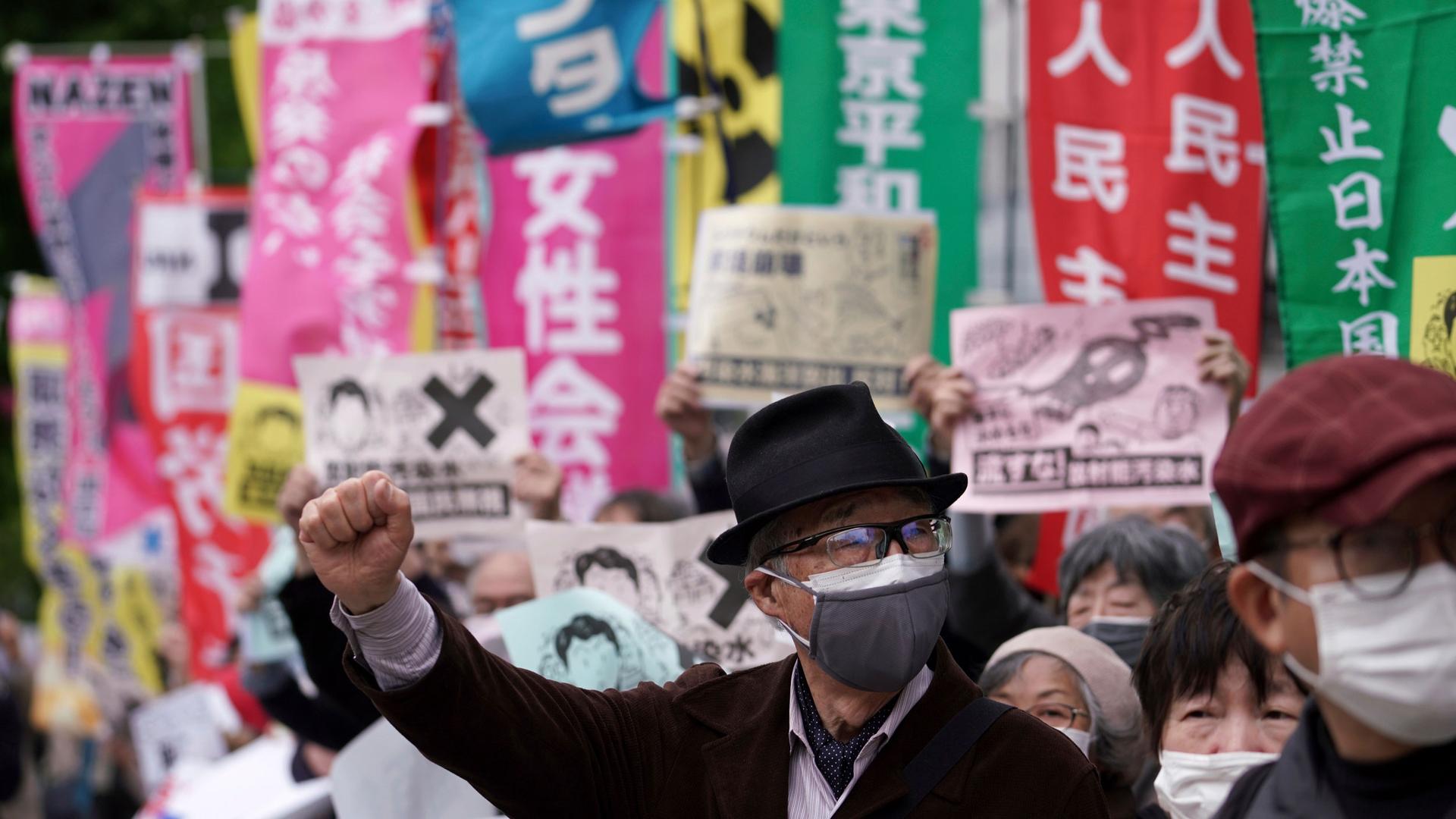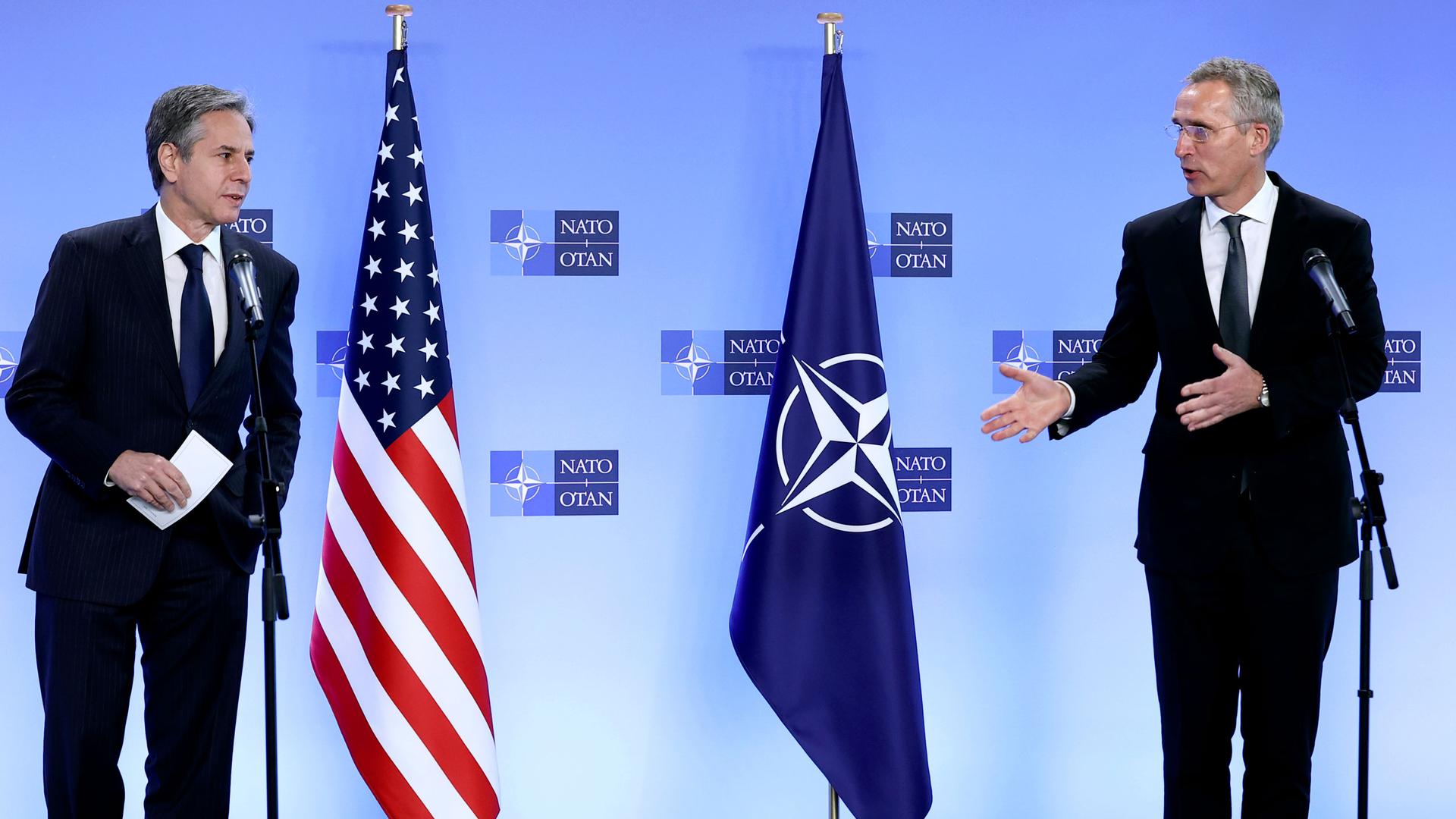US to coordinate with NATO on troop withdrawal from Afghanistan
NATO Secretary General Jens Stoltenberg (R) and US Secretary of State Antony Blinken address a media conference at NATO headquarters in Brussels, April 14, 2021.
Top of The World — our morning news roundup written by editors at The World. Subscribe here.
US Secretary of State Antony Blinken and Defense Secretary Lloyd Austin are meeting with NATO officials in Brussels to discuss a withdrawal of the military alliance from Afghanistan, after two decades of war. President Biden is expected to announce later on Wednesday the symbolic date of Sept. 11 as a new deadline to pull US troops out of Afghanistan.
Blinken said despite the withdrawal, neither the US nor NATO are abandoning Afghanistan, where approximately 7,000 NATO forces and an additional 2,500 US troops remain. “Together, we went into Afghanistan to deal with those who attacked us …, ” Blinken said. “And together, we have achieved the goals that we set out to achieve. And now it is time to bring our forces home.”
The Trump administration had previously set a deadline for withdrawal for US troops from Afghanistan for May 1, but The World’s Shirin Jaafari reports (?) that as the date approached, it became clear that the withdrawal was improbable.
With the forthcoming withdrawal, many are anxious about what this could mean for Afghanistan’s future in terms of security. Who is going to govern Afghanistan if there is no peace agreement? Will the country descend into civil war? These are just some of the questions on the minds of many Afghans these days.
What The World is following
The Ever Given, the massive cargo ship that recently blocked the Suez Canal for a week, has been impounded until $900 million in compensation is paid, Egyptian authorities announced. When the ship ran aground on March 29, it forced an unprecedented backup of one of the world’s most vital waterways. In addition to the global shortage of some goods, scientists say the stalled shipping traffic also caused a spike in sulfur pollution that can be seen from space. Officials say the ship will remain impounded until its Japanese owner pays for what Suez Canal authorities say is compensation for the salvage operation, loss in transit fees and other costs.
And, Somalian President Mohamed Abdullahi Mohamed has signed a controversial law extending his mandate in office for two years, following passage by the country’s parliament. The move comes after an election delay in February, and in defiance of objections from the international community. Critics argue Mohamed’s presidency has ended and the mandate extension could create more instability. The United States has threatened sanctions and called for Somalia’s federal and regional states to return to talks on the election crisis.
From The World
Refugees stuck in limbo over Biden’s inaction to restore admissions program

There’s been a steady focus on migrants arriving at the US-Mexico border. But refugees — less in the spotlight — have seen their chances of entry to the US grind to a halt, leaving them in unexpected limbo.
Many refugees have already been vetted and approved for entry through official US and United Nations agencies, but President Joe Biden has yet to make an official commitment to rebuilding the US refugee program.
The quest for a universal coronavirus vaccine

Last week, after getting FDA clearance, scientists at the Walter Reed Army Institute of Research in Silver Spring, Maryland, began a phase one trial on humans of their new coronavirus vaccine.
This isn’t just any vaccine. It’s one that scientists hope can work against any and all variants of the current coronavirus, and even the SARS-1 virus that fueled a deadly outbreak in 2002 and 2003.
Bright spot
Think of a giant, prehistoric armadillo or ground sloth. Now think of the massive tunels these animals dug under the earth. They are called paleoburrows and, to date, almost 2,000 of these tunels have been found across South America, mostly in the Brazilian states of Santa Catarina and Rio Grande do Sul, that border Uruguay and Argentina.
Scientists believe they could be 12,000 years old, or even much much older. The discovery is opening up a whole new branch of paleontology.

In case you missed it
Listen: Biden announces deadline for pulling US troops out of Afghanistan

President Joe Biden announced a new deadline to pull American troops out of Afghanistan for Sept. 11, 2021. It’s an important development in the push to end a nearly 20-year war. And, the tension between Russia and Ukraine continues to build as tens of thousands of Russian troops have amassed along Ukraine’s border. Now Ukraine, the US and Europe are on alert. Also, the government of Japan announced on Tuesday plans to release treated radioactive water from the wrecked Fukushima nuclear power plant into the Pacific Ocean.
Don’t forget to subscribe to The World’s Latest Edition podcast using your favorite podcast player: RadioPublic, Apple Podcasts, Stitcher, Soundcloud, RSS.
Our coverage reaches millions each week, but only a small fraction of listeners contribute to sustain our program. We still need 224 more people to donate $100 or $10/monthly to unlock our $67,000 match. Will you help us get there today?
